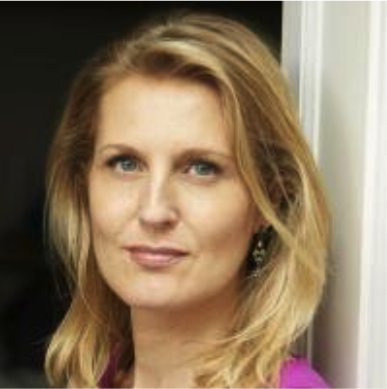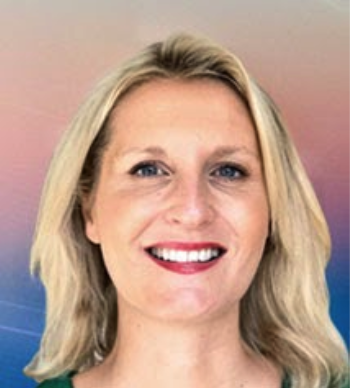Amandine Roche: A Life Dedicated to Peacebuilding
 Hi, my name is Amandine Roche. It's a great honor to be with all of you today to speak about peace and inner peace.
Hi, my name is Amandine Roche. It's a great honor to be with all of you today to speak about peace and inner peace.
At the age of 18 I was very fortunate to meet His Holiness, the Dalai Lama, a Nobel Peace Laureate, who came to my University in Bordeaux, South of France, to speak about the violation of human rights in Tibet and the nonviolence resistance of the Tibetan. I was very fascinated by his story. He was, according to me, a real Apostle of peace, nonviolence, and compassion. I was fascinated by his colors and I was fascinated by his aura. I decided that this is what I want to do, to study human rights, join the United Nations, and bring back the Dalai Lama to Tibet.
I was very naive at this time because I was not really aware of the veto of the Chinese and the Security Council. But at least at this time I was looking for purpose into my life, I was looking for meanings into my life, and it really gave me a direction to where to go, to my path. And this is exactly what I did. I studied human rights. I wrote my political science thesis on the violation of human rights in Tibet, after the kidnapping of Gedhun Choekyi Nyima, the youngest prisoner in the world. And I did a master’s degree in International relations.
At the age of 24, I joined United Nations, first in Uzbekistan, after in Tajikistan, and finally in Afghanistan. By chance, I ended up in Kabul on September 11, 2001, before the American bombing. And I was also stuck in the country with all the Afghan before the American bombing. I had to flee the country with them. And at the border, a small girl asked me to save her because she was so scared of a war. And unfortunately I couldn't take her with me. But I promised that I will come back and I will dedicate my life for these people.
I really found my country, my playground to implement the human rights that I learned and my desire to work on women’s empowerment, because I do believe that's a way to heal the planet as well. And so I came back in 2003 in Afghanistan and I joined United Nations, working on peace education, civic education, explaining to the population what is human rights, why women should take the lead and become deputy and senator. We helped them to do the electoral campaign, and it was a very fascinating time for me, a very rewarding time because the women listened to us. We were doing door-to-door campaign, and at the end the women became civic educators. At the end, the women took the lead and showed up on election day to cast the ballot for a new president.
Unfortunately, after a year and a half, three of my international colleagues got kidnapped in front of my office. United Nations was scared that they might kidnap me as well because we were working for peace for democracy, and we might do something with a ballot paper, so maybe they will ask to kidnap me as well. So United Nations evacuated me. And when I came back to my country, France, I was literally burned out, depressed, anxious, and full of sadness because my colleagues were still kidnapped. After months, they got released, but I was still feeling all the pain in my belly. I have to go on Ayurvedic healing because I started to have a stomach cancer caused by the stress. And my healers say that I cannot go back to Afghanistan if I don't know how to protect myself. And I ask him, how can I protect myself? Because, you see, my body was becoming like a vacuum cleaner. It was just like absorbing all the negativity, the bombing, the assassinations, the death threats, the kidnapping.
I was such a sponge because I was an empath. But in order for me to go back in a war zone, I needed to learn how to meditate. So instead of going back to Afghanistan, I decided to go back to India, to go back to Dharamsala where I met the Dalai Lama. But this time, not for human rights. I wanted to meet him, but to learn the technique of meditation. I took a class with him, and I was very impressed by his wisdom because he said, "Who are you to work for peace in the world if you are not at peace with yourself first?” which is true. Who am I to work in Afghanistan if I'm completely broken, if I'm completely depressed, if I'm burned out... I should better stay at home. Otherwise, I'm a fraud, because the people cannot benefit from my wisdom and my peaceful presence.
And so instead of going back to Afghanistan, I decided to stay in India instead and to learn the technique of yoga and meditation. I became a yoga and meditation teacher. I learned hatha yoga and I went to all the classes of his Holiness, the Dalai Lama, where I taught the values of compassion, which is suffering with the person. And after I met also His Holiness the Karmapa, I took my backpack and I did a 10-day meditation retreat of Vipassana, and Vipassana totally changed my life. Because Vipassana is really the technique that helps you to meet your monkey mind, your mental... and the monkey mind wants to jump in the past, in the future, and never wants to be in the here and now. And by this technique of meditation, where for 10 days you don't read, you don't write, you don't have any eye contact, you don't have access to the external world, and you are just with yourself in silence.
It's the way I discovered the values and the core of meditation. After I spent a lot of time with Amma in South of India; she is a real incarnation of what unconditional love is, with a big heart and always joyful presence. She's a hugging saint. So she reconciled me also with my feminine path. And finally I spent a lot of time with the Gandhi family in Sevagram at the Gandhi ashram, and I learned the technique of ahimsa, which is nonviolence. And I took the vows of nonviolence, which is, in order to keep your peace of mind, you don't eat meat, which means you don't kill. You don't lie, you don't steal, you don't take any intoxicant, and you don't have any sexual misconduct.
And when finally I found my peace of mind again, I went back to Afghanistan; United Nations called me to work with them again. And at this time it was worse under security level. I have to have a bodyguard, I have to have an armed vehicle, I have to live in a bunker, and I have to carry a helmet and a bulletproof jacket on a daily basis every time I was moving. It was very tough conditions, I have to say. And so in order for me to keep my peace of mind, I was doing yoga and meditation every day. My colleagues saw that I changed because when there was bombing outside, I was not freaking out as before. So they asked me what I had done to change and I told them I'm doing my practice every single day. So they asked me to start to teach, which I did, and my Afghan colleague got interested. So I asked him to come into my house, and when I listened to the story I realized that all of them were suffering from post-traumatic stress disorder, depression, and anxiety. But the problem has not been addressed because longtime health is a luxury for the Western world, and not for war zones, conflict zones such as Afghanistan.
Unfortunately, at the end of my mission, six of my international colleagues got assassinated in August by Taliban disguised as police, and we have to evacuate again. And when I evacuated again in India, I decided to come back to Afghanistan and I created my foundation called the Amanuddin Foundation, where we bring all these tools of inner peace and nonviolence in schools. And where we teach yoga and meditation in the army, in jail, in women’s shelters, in schools, and within the Taliban. And it was very well welcomed. I have received so much good feedback from the population saying that they benefited so much from this technique that I wrote a long letter to my boss, Ban Ki-moon at the United Nations, saying that all my friends and colleagues on the front line should benefit from this technique. With that in mind, I had a meeting with his cabinet, and they said we need to move forward with the vision.
They gave me the green signal to create the Inner Peacekeeping Program, which offers the tools of inner peace, compassion, harmony, and to put these into practice on a daily basis to allow you to really become an apostle of peace. And to prevent the post-traumatic stress disorder, to prevent the burnout, the depression, and anxiety when the external world is overwhelming and stressing you. It was a big success, it was very welcomed by the humanitarians working with refugees in the Middle East. And I'm creating the Inner Peace Corps organization, where we bring all these techniques of inner peace into refugee camps and where we transform refugee camps into healing camps.
If I was able to find peace in a war zone, I definitely assure you that you can find peace in your own life. Thank you.
|
Click here to read Amandine Roche's article in Catalyst: Click here to watch and read Amandine Roche's video profile in Catalyst: |
 Amandine Roche is a Human Rights and women’s empowerment expert with 20 years experience in conflict contexts across Asia, Africa, Europe, and South America. She’s worked with the United Nations Department of Peacekeeping, European Commission, USAID, UNICEF, UNDP, UNESCO, and UN WOMEN. She’s participated in 20 peace processes around the world.
Amandine Roche is a Human Rights and women’s empowerment expert with 20 years experience in conflict contexts across Asia, Africa, Europe, and South America. She’s worked with the United Nations Department of Peacekeeping, European Commission, USAID, UNICEF, UNDP, UNESCO, and UN WOMEN. She’s participated in 20 peace processes around the world.
She’s an author, photographer, explorer, public speaker, social entrepreneur, and yoga and meditation teacher. Amandine is also a healer and a Search Inside Yourself teacher.
She’s the founder of the Amanuddin Foundation in Afghanistan and the Inner Peacekeeping Program for humanitarians on the front line. She is now creating the Inner Peace Corps organization to bring the tools of inner peace to refugee camps.
Click here to visit Amandine’s website.
Catalyst is produced by The Shift Network to feature inspiring stories and provide information to help shift consciousness and take practical action. To receive Catalyst twice a month, sign up here.



